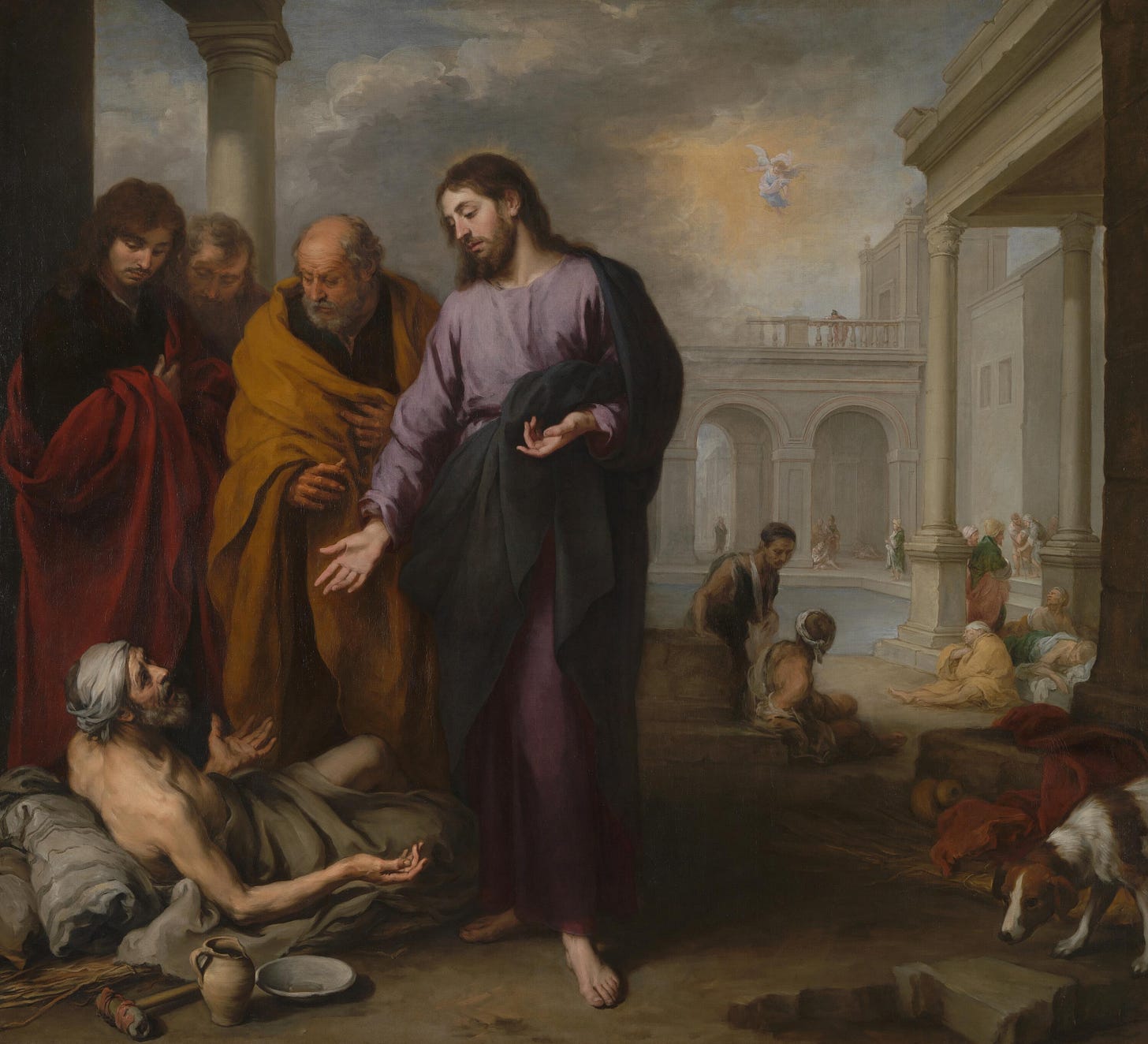The Logos Does Not Wait for Permission
“Christ does not merely fix what is broken. He completes what was always intended.”
John 5.1-9
For the Sixth Sunday of Easter the lectionary provides an additional, optional passage from the Gospel of John. You would think that if the lectionary had room for one more reading then the powers-that-be could supply a text from the Old Testament but that’s a rant for another day.
In John 5, Jesus and the disciples have returned to Jerusalem for a festival. Near one of the city’s many ancient gates, the Sheep Gate, Jesus approaches a pool at Bethsaida. I’ve been there. The place would’ve been congested, chaotic, and confused with that ill summoned there. John reports the healing waters of the pool have attracted “many ill, blind, lame, and paralyzed people,” including “one man was there who had been ill for thirty-eight years.” Note: John does not specify what ails this ill man.
Jesus— God and Man— intuits this suffering fellow has been there for a long time.
So knowing, Jesus proceeds to practice an odd medicine on the man. Mary’s boy does not reach down and touch him as he does the man with the withered hand in the Gospel of Mark. He does not, like the Samaritan for the man in the ditch, stoop down, pick him up, and carry him to his salvation. Jesus simply asks him a question— a rude question we might think unbecoming for Jesus to pose.
“Do you want to be made well?”
The question sounds like a provocation.
Jesus queries not after his ailment but his desire.
“Do you desire to be made well?”
Maximus the Confessor interprets this passage not as a question of the ill man’s willpower or his psychological readiness— Jesus is neither a physical therapist nor a social worker. The question Jesus proffers, Maximus insists, is a metaphysical invitation. For Maximus (and, for that matter, for John Wesley) Jesus does not merely heal the body. He reorders the cosmos. He “innovates” creation by joining it irrevocably to himself.
In the Ambigua to John, Maximus writes:
“The Word of God (that is, Jesus) willed to effect the mystery of his Incarnation not only once, but always and in all things.”
For the church fathers, the passage provides a clear illustration of the human situation apart from the Word’s work. The man at the pool is not simply sick. That John tells us he has laid there for nearly four decades is a clue. He is dis-integrated; that is, he is alienated from the End— the telos— of his existence.
Keep reading with a 7-day free trial
Subscribe to Tamed Cynic to keep reading this post and get 7 days of free access to the full post archives.


